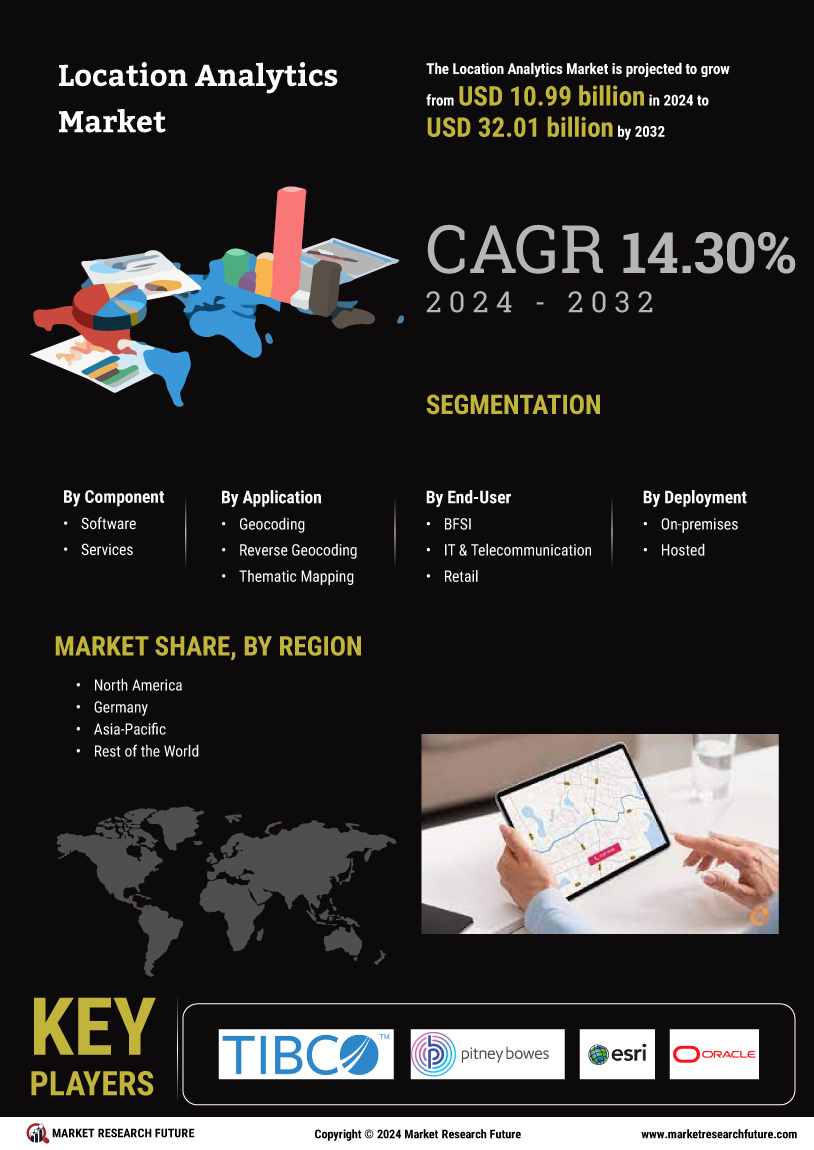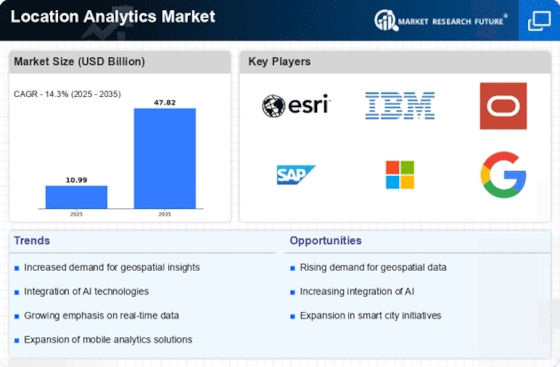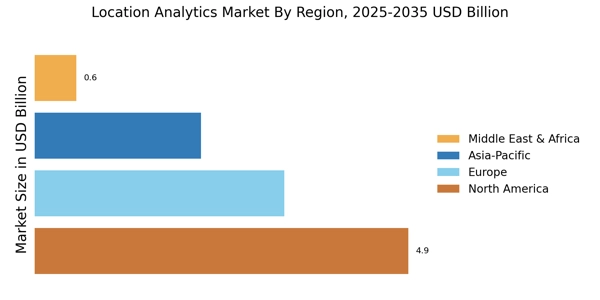Growing Adoption of Smart Devices and IoT
The Location Analytics Market is witnessing a notable impact from the growing adoption of smart devices and the Internet of Things (IoT). As more devices become interconnected, the volume of location data generated is increasing exponentially. This influx of data presents organizations with unprecedented opportunities to harness location analytics for various applications, including asset tracking, fleet management, and customer engagement. The proliferation of smart devices is likely to drive the demand for location analytics solutions, as businesses seek to leverage real-time data to enhance operational efficiency and improve customer experiences. This trend suggests a promising future for the Location Analytics Market.
Regulatory Compliance and Risk Management
The Location Analytics Market is also influenced by the increasing emphasis on regulatory compliance and risk management. Organizations are required to adhere to various regulations that necessitate the use of location data for compliance purposes. This is particularly evident in sectors such as finance, healthcare, and transportation, where location analytics plays a crucial role in ensuring adherence to legal requirements. The need for effective risk management strategies is driving organizations to invest in location analytics solutions that can provide insights into potential risks associated with geographic factors. As regulatory frameworks continue to evolve, the demand for location analytics is expected to grow, further solidifying its importance in various industries.
Expansion of E-Commerce and Retail Analytics
The Location Analytics Market is significantly influenced by the expansion of e-commerce and retail analytics. As online shopping continues to gain traction, retailers are increasingly utilizing location analytics to understand consumer behavior and preferences. This trend is evidenced by the fact that e-commerce sales have seen a steady increase, with projections indicating that they could reach trillions in revenue in the coming years. Retailers are employing location analytics to optimize store placements, enhance inventory management, and tailor marketing campaigns to specific demographics. Consequently, the demand for sophisticated location analytics solutions is likely to rise, further propelling the growth of the market.
Increased Demand for Data-Driven Decision Making
The Location Analytics Market is experiencing a surge in demand for data-driven decision making across various sectors. Organizations are increasingly recognizing the value of location-based insights to enhance operational efficiency and customer engagement. According to recent estimates, the market is projected to grow at a compound annual growth rate of approximately 15% over the next five years. This growth is largely attributed to the need for businesses to leverage geographic data to optimize supply chains, improve marketing strategies, and enhance customer experiences. As companies strive to remain competitive, the integration of location analytics into their decision-making processes appears to be a critical factor in driving market expansion.
Advancements in Geographic Information Systems (GIS)
The Location Analytics Market is being propelled by advancements in Geographic Information Systems (GIS). These technological innovations enable organizations to visualize and analyze spatial data more effectively, leading to improved decision-making capabilities. The integration of GIS with other technologies, such as big data and cloud computing, has enhanced the accessibility and usability of location analytics tools. As organizations increasingly adopt these advanced GIS solutions, the market is expected to witness substantial growth. The ability to analyze complex datasets and derive actionable insights from location-based information is becoming indispensable for businesses aiming to enhance their operational strategies.

















